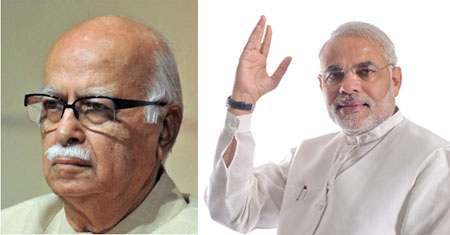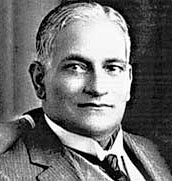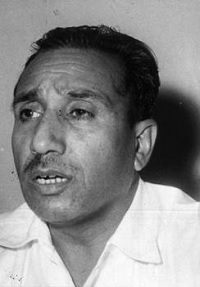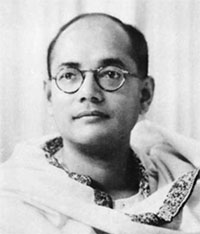Apr 15, 2025
Apr 15, 2025
by H.N. Bali
Implication of the Emergence of Narendra Modi - I

Politics, quintessentially, is an ongoing marathon. And fiercely competitive too! Participants in it are all the time jostling for position. The aim, unfailingly, is to forge ahead of others and to reach the winning post first of all. And almost each race has its own set of rules. All said and done, winning is what matters. And behind a suave exterior, there’s ruthless pursuit of success.
In a functioning democracy, the race is – at least in many laps – in full public view. People at large are not unaware of who won and who lost, and also how. In a totalitarian society only the fait accompli is revealed to the public. Who climbed on whose back and who backstabbed whom, is all discreetly kept under wraps. That all the murky details surface in public view with time is another story.
Today, we know how Stalin eliminated his rivals, how he got Leon Trotsky assassinated and how Mao ruthlessly throttled opposition to him to remain in power. What role Dame Luck plays in the emergence of the lucky ones – wasn’t Deng Xiaoping one of them? – At the top of the heap? How Xi Jinping, for instance, emerged at the top in the latest round of China’s new-fangled Leadership Transition formula and who his rival were, will be known perhaps a few decades hence.
Most of all, it is absolutely not the rule that the best make their way to the top. It’s invariably the second or the third best, but a darling of luck, above all.
In a provocative study of the democratic process – The Lost Leaders: The Best Prime Ministers We Never Had – Edward Pearce examined the lives and careers of three British leaders: RA Butler, Denis Healey and Iain MacLeod. These were the men who had the potential (even their worst critics will concede that) to make to the top – their mistakes notwithstanding - but they couldn’t. Pearce poses the question: “Why looking for the best, most creative, competent or intelligent, we quite often get someone else”? (Unfamiliar with Indian political scene he forgot to add senior in his list of above adjectives. With a touch of poignancy he adds: “No rules exist for the outcome of races”.
Is this relentlessness inherent in democratic politics? Or is it the framing of the rules of the game that is faulty? Pearce maintains: “Politics, after all, is too human (which may mean too stupid) to be left to merit”. Is it on account of this human failing that BK Nehru who could have made to the top of diplomatic pyramid – the office of the Secretary General of the United Nations was almost his but for the asking, but failed thanks to V K Krishna Menon – chose the title of his scintillating memoirs as Good Guys Finish Second.
Race that Began with Nehru
Let’s not be lulled into the belief that Nehru had just to walk over to his South Block office. In our case, Patel was the best prime minister we could imaginably have had. If the Congress Party wasn’t beguilingly fixated on Nehru - its Prince Charming - in 1946 and voted, instead, for Patel as Congress President he would have been the first Prime Minister of free India. Maulana Azad continued to regret why he chose to throw his weight behind Nehru’s selection and he called it “perhaps the greatest blunder of my political life”. And in that case it would have been a different India today. Patel had his finger on the pulse of the common man whose problems he knew of, and more importantly, knew how to go about to solve them. The party vote was carried away by rhetorical flourishes, the lingering haze of which lasted all through the Prime Ministership of Nehru.
Incidentally the Nehru mania, in my opinion, is rooted in a long-lasting Indian myth about power and politics. It is based on the aura of charisma around a person of some means and standing, relinquishing station of power and resolving to live a simple life to serve fellow beings. Raja Bhartrihari is one such eminent example.  And this is what Motilal Nehru encashed upon. Towards the end of his legal career he chose to build the myth of deliberate renunciation to serve the country. Actually, it was a timely hitch-on to the irresistible avalanche of freedom movement of Gandhi which Motilal and his ilk had earlier scoffed at. The story of great sacrifices was an elaborate exercise at public relations. It is like fairly comfortable stays in jails converted into legends of great sacrifices. And it turned out to be a hugely successful, and that’s what is important.
And this is what Motilal Nehru encashed upon. Towards the end of his legal career he chose to build the myth of deliberate renunciation to serve the country. Actually, it was a timely hitch-on to the irresistible avalanche of freedom movement of Gandhi which Motilal and his ilk had earlier scoffed at. The story of great sacrifices was an elaborate exercise at public relations. It is like fairly comfortable stays in jails converted into legends of great sacrifices. And it turned out to be a hugely successful, and that’s what is important.
Yet Nehru had competitors in the political race. Besides Patel, he perceived in Subhas Bose a potential rival with equally – if not more – valid claim to the Prime Ministerial office. Even after Nehru was well settled in office he had the lurking fear of Netaji materializing because none of the various enquiry committees entrusted to go into the issue of his death in air crash, had conclusively established his death as per the official version.
Nehru’s emergence at the top was not the first or the last time that there was tussle to assume the top slot.
Indira Gandhi had her own rivals in the race to build dynastic rule. That she deftly maneuvered her way past the Syndicate stalwarts and split Congress several times till it was converted into a family fief, is a story in itself (that I’ll take up some other time.)
Forgotten Role of Madhok Played
If political leaders cannot deliver what is expected of them and fail to live up to the expectations they arouse among their followers, they must go. It is the hall mark of wisdom if they go on their own. There is, for instance, an extremely healthy tradition in British politics that a political leader who loses a general election calls it a day voluntarily. Going by this, Advani should have resigned after losing the 2009 general elections and made room for the next generation. To harbor uncertain hope of winning an election in 2014 when he would be 86 borders on laughable political gimmickry.
 Today’s generation might not even have heard of a man called Balraj Madhok, whom I had the good fortune of knowing (till we lost track of each other) and having had several stimulating discussions. He was a former New Delhi and South Delhi MP, and, if I’m not wrong, probably the most senior leader alive who along with Shyama Prasad Mukherjee had formulated the principles which the Jana Sangh stood for. All that was in the early 1950’s.
Today’s generation might not even have heard of a man called Balraj Madhok, whom I had the good fortune of knowing (till we lost track of each other) and having had several stimulating discussions. He was a former New Delhi and South Delhi MP, and, if I’m not wrong, probably the most senior leader alive who along with Shyama Prasad Mukherjee had formulated the principles which the Jana Sangh stood for. All that was in the early 1950’s.
Today’s Sangh Parivar leadership, unfortunately, refuses to publicly recognize his role in building, formulating and propagating the Jana Sangh ideology. He is still alive and some activists even now regard him to be an iconic figure. It is a heartening sign that he reached out to Narendra Modi to give him his blessings. According to him, the BJP has taken the correct decision in appointing Modi to head its poll panel to infuse new hopes and aspirations in tune with the demands of the times.
Interestingly enough, the recent Goa drama within the BJP has had shades of the Madhok episode of early seventies which led to the Jana Sangh co-founder’s suspension from the party as a result of a conspiracy hatched by some top leaders of the party and the RSS. Madhok was the Jana Sangh’s strongman and it was during his presidentship of the party that the Saffron Brigade for the first time got 33 seats in the Lok Sabha in the 1967 general elections.
However, after the assassination of his successor and Jana Sangh ideologue Pandit Deen Dayal Upadhyaya in early 1968, the party was taken over by Atal Bihari Vajpayee and Nanaji Deshmukh. Madhok was subsequently eased out after the 1971 elections and he in his books, holds Vajpayee, Advani, Nanaji and K.R. Malkani responsible for the action against him.
The similarities between the goings-on in Goa with the circumstances leading to Madhok’s ouster were there for everyone to see who care to remember the past. It was Madhok who had contributed to the rise of Advani in the Jana Sangh days just as Advani had contributed to Modi’s rise in the BJP. Advani, despite taking back his resignation, is certainly not on the right side of the RSS. And if he does it would be a sign of wisdom.
If what Madhok says against Vajpayee and Advani is true, then politics seems to have gone through a full circle. One reason for Advani to withdraw his resignation could be that he too feared that the RSS might come down heavily against him.
Another irony is that in his letter Advani talked about how the BJP was not the same party with the same values as it was earlier. When leaders like Madan Lal Khurana, Kalyan Singh, Uma Bharati and Babulal Marandi pointed out this fact to him while he was at the top, he did not agree and instead marginalized them.
History will always remember Advani as a great leader of the BJP for his contribution in making it a national force to reckon with. But he is also equally responsible for sidelining seasoned leaders and instead replacing them with cosmetic leadership owing allegiance to him and not the party. Modi can learn his own lesson from this.
Modi the ‘Bhasmasur’, of our times
Narendra Modi has no dearth of detractors. More especially, our pseudo-secularists are very worked up at his rise and rise. Jairam Ramesh, one of the few literates in the Manmohan Singh Cabinet, compared Modi to the demon ‘Bhasmasur’, a mythological character known for trying to destroy his creator. He lamented in a fit of tender heartedness how the Gujarat chief minister had “consumed” his mentor LK Advani.
Bhasmasur, you may recall, was a demon who was granted the power by Lord Shiva to destroy anyone whose head he touched with his hand. When Shiva granted him the power, Bhasmasur attempted to touch the head of the Lord himself because he was keen to possess his consort, Parvati. Mortified, Shiva fled, and was chased by Bhasmasur. Wherever Shiva went, Bhasmasur chased him. Somehow, Shiva managed to reach Vishnu to seek a solution to this predicament. Vishnu on hearing Shiva's problem, agreed to help him out.
Vishnu assumed the form of Mohini, the enchantress and appeared in front of Bhasmasur. Mohini was so exceedingly beautiful that Bhasmasur immediately fell in love with Mohini. Bhasmasur asked her (Mohini) to marry him. She told him that she was very fond of dancing, and would indeed marry him only if he could match her dance moves identically. Bhasmasur agreed to the condition. They started dancing. The feat went on for days. As Bhasmasur matched the disguised Vishnu’s move for move, he began to let his guard down. While still dancing, Mohini, struck a pose where her hand was placed on top of her own head. As Bhasmasur imitated her, he was tricked into touching his own head, and hence Bhasmasur immediately burnt up and turned into ashes.
Jairam Ramesh is mature enough to know that there isn’t in politics anything like automatic succession other than in the inner court of the Congress. Even there you remember what happened when one late evening in March 1998 Soniaji drove to Sitaram Kesri’s residence and told him to get going. Unceremoniously, the poor fellow was bundled out, stripped off both his pillar and post (as notional Congress President.)
Yes, political races at times take nasty turns. At the end of his first term, the presidential election to the Tripuri Congress session took place early in 1939. Subhas Chandra Bose was re-elected, defeating Dr. Pattabhi Sitaramayaa who had been backed by the Mahatma. Gandhi who considered Sitaramaya’s defeat as his own defeat. The followers of Gandhi did not allow Subhas Chandra Bose to function effectively. Soon after the election, the members of the Congress Working Committee resigned, and the Congress met at Tripuri under the shadow of a crisis within the Party as well as internationally.
 Subhas Babu was a sick man at Tripuri, but even so, with amazing, almost prophetic foresight, he warned that an imperialist war would break out in Europe within six months.
Subhas Babu was a sick man at Tripuri, but even so, with amazing, almost prophetic foresight, he warned that an imperialist war would break out in Europe within six months.
He demanded that the Congress should deliver a six-months’ ultimatum to Britain and in the event of its rejection a country-wide struggle for ‘Poorna Swaraj’ should be launched. His warning and advice, however, went unheeded, and what was worse, his powers as President were sought to be curtailed. He, therefore, resigned in April 1939, and announced, in May 1939, the formation of the Forward Bloc within the Congress.
Bhasmasur and his incarnations, Jairam Ramesh should realize, aren’t confined to any one political party. Each political formation has its own version – the Congress perhaps the most of all.
15-Jun-2013
More by : H.N. Bali

|
A real analysis for those who wish to learn. |

|
This is a very informative piece of writing aptly using the Bhasmasur and the Mohini dancer metaphors for political machinations. These metaphors, here, are euphemism for the game of treachery played by the rank and files in political arena with deeply ingrained self aggrandizement motives. To make inroad to the top always a very discrete image management is resorted to ease out even the meritorious and to popularize the personality cult of the convenient choice. Behind this always remains the vicious utilitarian motive which raises its ugly head in form of Bhasmasur to tarnish the personality cult and to devour its creator as well the creation. No wonder, Modi's personality cult was carefully nurtured for quite sometimes for his current rise to the coveted position. The dubious ideological ambivalence of Advani had always come to the forefront marginalizing his personality as a leader of national stature, coupled with his octogenarian senility to lead India in the midst of crucial 21st Century challenges. Modi on the other hand was recurrently hyped by a section of party followers, maybe the Bhasmasurs of the future years. Also the media played a very pivotal role in creating the Narendra Modi myth by highlighting Modi's superhuman success in steering Gujurat towards phenomenal economic development. [Indian Journalists Group: Linkedin] |

|
Bali saab's episodic pieces are enlivening and he deserves our kudos for these great contributions. |

|
Your understanding of the politics and the history of politics is commendable. I hope you bring this series eventually to a conclusive view on emergence of Modi and what it offers to the future of India. Good yo have you back. |